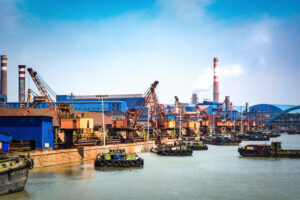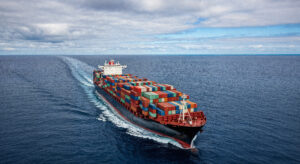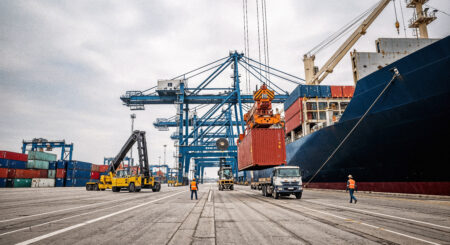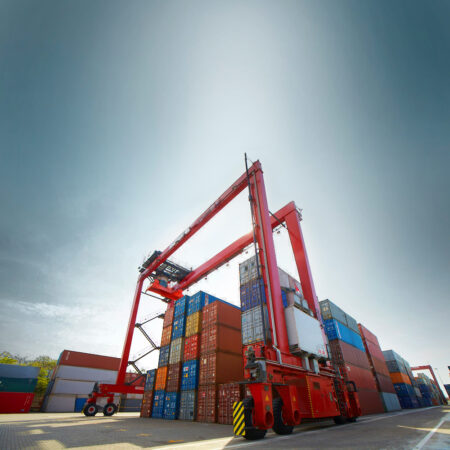DP World’s Nhava Sheva welcomes new shipping services, while India targets $1 trillion in exports by FY26 despite rising global protectionism.
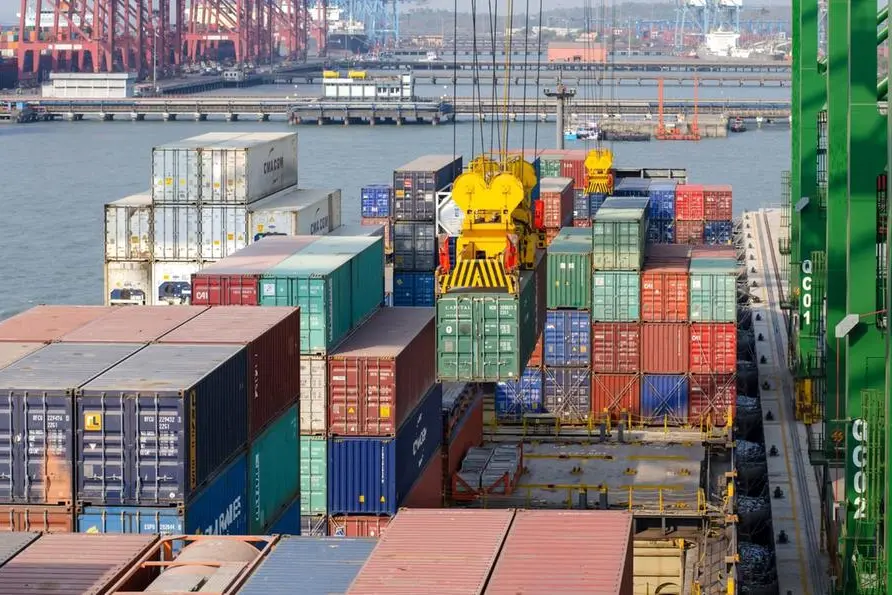
DP World has significantly enhanced India’s trade connectivity with key Asian economies through the inaugural calls of the CI6/SIS/CISC2 and SI8/AIS5 services at its Nhava Sheva (JN Port) terminal. These new weekly services offer expanded market access for Indian exporters and importers, streamlining supply chains and reducing transit times.
The CI6/SIS/CISC2 service, operated by six vessels with a 5,600 TEU capacity, links Shanghai, Ningbo, Shekou, Port Kelang, Nhava Sheva, and Mundra. The SI8/AIS5 service deploys four vessels with a 2,800 TEU capacity, connecting Jakarta, Surabaya, Singapore, Port Kelang, Mundra, and Nhava Sheva.
Ravinder Johal, COO, Ports & Terminals, DP World Subcontinent and MENA Region, stated, “These services will offer Indian exporters and importers faster, more direct access to major markets in China, Indonesia and Southeast Asia, further streamlining supply chains and reducing transit times.”
In related news, India’s export sector achieved a significant milestone in FY24-25, reaching a record $824.9 billion, a 6.01% increase from the previous year. This growth was driven by a 13.6% surge in services exports to $387.5 billion and merchandise exports reaching $437.4 billion.
S. C. Ralhan, President, FIEO, announced an ambitious target of $1 trillion in exports by the end of FY25-26, aiming for $525-535 billion in merchandise exports and $465-475 billion in services exports. To achieve this, strategies include market diversification, promotion of value-added products, strengthening trade agreements, enhancing competitiveness, supporting SMEs, and adopting digital technologies.
However, the global trade landscape is facing a resurgence of protectionist policies, with G20 import restrictions soaring by 75% since 2016. Notably, the U.S. has escalated its average effective tariff rate to an estimated 27% in early 2025. The EU is also increasing non-tariff measures (NTMs) focused on the environment and sustainability, potentially becoming barriers for MSMEs.
Three prominent EU regulations coming into force from January 1, 2026, are the EU Deforestation Regulation (EUDR), Carbon Border Adjustment Mechanism (CBAM), and Eco Design Sustainable Product Regulation (ESPR). The ESPR framework will be implemented through a Digital Product Passport (DPP), requiring comprehensive digital recording of a product’s lifecycle from raw materials to disposal.
The DPP, mandatory for sectors like electronics, textiles, and construction materials, poses challenges for Indian exporters, especially MSMEs, due to increased compliance burdens, the risk of market access barriers, the cost of digital integration, and the need for full supply chain traceability.
FIEO and Export Promotion Councils are urging the government to create sector-specific task forces, develop a national digital infrastructure for DPP generation, and provide assistance to MSMEs. They also emphasize the need for extensive capacity-building programs to educate exporters on product sustainability, digital traceability tools, and EU regulations.
While the Digital Product Passport presents a challenge, it also offers India a significant opportunity to upgrade manufacturing processes, embrace green technologies, and enhance global trust in Indian products.
Source: PR


